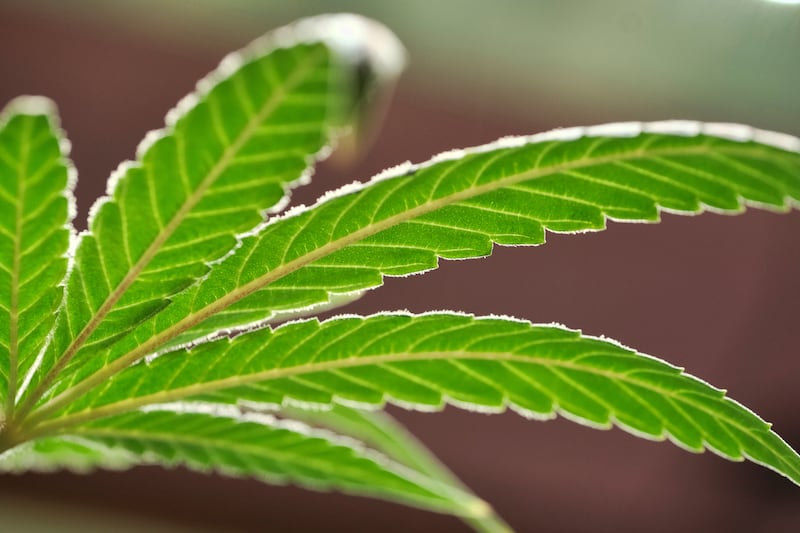“I think it’s a very big factor,” President Donald Trump told reporters recently, supporting Health and Human Services Secretary Robert F. Kennedy Jr.’s views that acetaminophen use during pregnancy is causing a spike in cases of autism in children.
To put it generously, the science is inconclusive on this. But Trump said warning women is important even if it’s not yet proven. “If there’s a question — even if there’s a question — you just do it, right?”
Of course, we have long embraced the precautionary principle when it comes to pregnant women. Don’t have coffee or cold cuts. Don’t even think about sushi. And that glass of wine you’re considering? Are you a monster?
When I was pregnant with my first child and refused for a week to take any over-the-counter medication for what turned out to be bronchitis, I landed in the emergency room. At which point I was prescribed steroids, antibiotics and cough medicine with codeine.
“Maybe you could have let her take NyQuil a few days ago?” my husband pointedly wondered to the ER doctor.
But if the president is looking to offer some guidance to pregnant women about what is good for their unborn children, he might start with illegal drugs. Drug use during pregnancy has been on the rise for the past two decades. Cannabis, in particular, has become more popular because of its widespread legalization and cultural acceptance. Prevalence estimates of perinatal cannabis use range from 10% to 43%. In a survey of past-year marijuana users, 16.2% of pregnant women reported using the substance almost daily and of those, 18.1% met the criteria for abuse and/or dependence.
A recent survey from The Wall Street Journal noted that more than half of the pregnant women using cannabis said they were using it “exclusively for medical reasons.” The reasons included “stress and anxiety, nausea, lack of sleep, vomiting and pain.” Others said they used it because cannabis was cheaper than going to see a doctor.
The Journal interviews one woman who says she took cannabis to ease hyperemesis gravidarum, which causes extreme nausea and vomiting during pregnancy. “It was a constant process of weighing what I read, comparing it to lived experiences, and trying to make sense of it all for myself,” she said.
In the end, her daughter was born premature and had to use a feeding tube. She wonders whether this could have been the result of her cannabis use, but she shrugs it off. Of the 6-year-old she says, “She’s one tough cookie.”
Low birth weight is one of many outcomes linked to cannabis use during pregnancy. Others include a higher risk of autism, poor fetal development and even more dangerous deliveries. Recent research has also shown that higher levels of THC — the ingredient in marijuana that makes you feel high — was linked with chromosomal abnormalities.
A study published in the journal Nature Communications found that exposure to higher levels of THC could be associated with worsened fertility and increased reproductive complications as well. One of the researchers told CNN that “the worst thing I would want is for the public to read this and become fearful.”
Is that really the worst thing?
Another researcher who was not involved with the study thought the outcomes “may help patients that cannot abstain from cannabis with a harm-reduction strategy.”
So we can tell women not to drink or smoke during pregnancy but we can’t tell them to just say no to THC? She noted that “With this information, these patients can consider reducing the amount of cannabis that they are using to mitigate adverse outcomes to their babies.”
Just to be clear, there are absolutely no FDA-approved uses for cannabis. While it has been shown to help with some nausea associated with cancer, studies suggest that this use is no better than a placebo or other approved treatments. But the public embrace of cannabis has continued much faster than the research we have on its harms. Dr. Mark Meyer, a New York City-based cardiologist told the Journal News that “because it’s been legalized in many cases for political expediency, which doesn’t have anything to do with safety, we’re now playing catch up with safety issues.”
Indeed, New York Magazine recently published a long story by Katie Arnold-Ratliff called “Should You Tell Your 7-Year-Old About Your Weed Gummies?” The author seemed puzzled that, given the dramatic rise in pediatric poisonings related to cannabis, more parents don’t have honest conversations with their kids about what is in that stuff that looks like candy. “Why don’t more parents acknowledge to their kids the truth about what they are — and why they should be avoided?”
Just to be clear, the article is in no way suggesting that adults might avoid this substance. Indeed, one doctor compares it to Tylenol or cleaning products, which are perfectly legal but also need to be kept out of reach of children. Right, except you can probably explain to your 7-year-old why you have Tylenol and cleaning products. Maybe it’s more like your liquor cabinet — something just for adults. But then your astute 7-year-old might wonder why your cannabis looks like gummy bears?
It is impossible to disentangle the campaign to legalize cannabis with its broader cultural acceptance. Perception of risk has fallen dramatically among all groups, including teens and pregnant women. And with acceptance and legalization and mass marketing, cannabis has also become more widely available to everyone, even kids who were not the target audience. It’s time to rethink the messaging here. “If there’s a question, even a question,” maybe we should warn people away.



